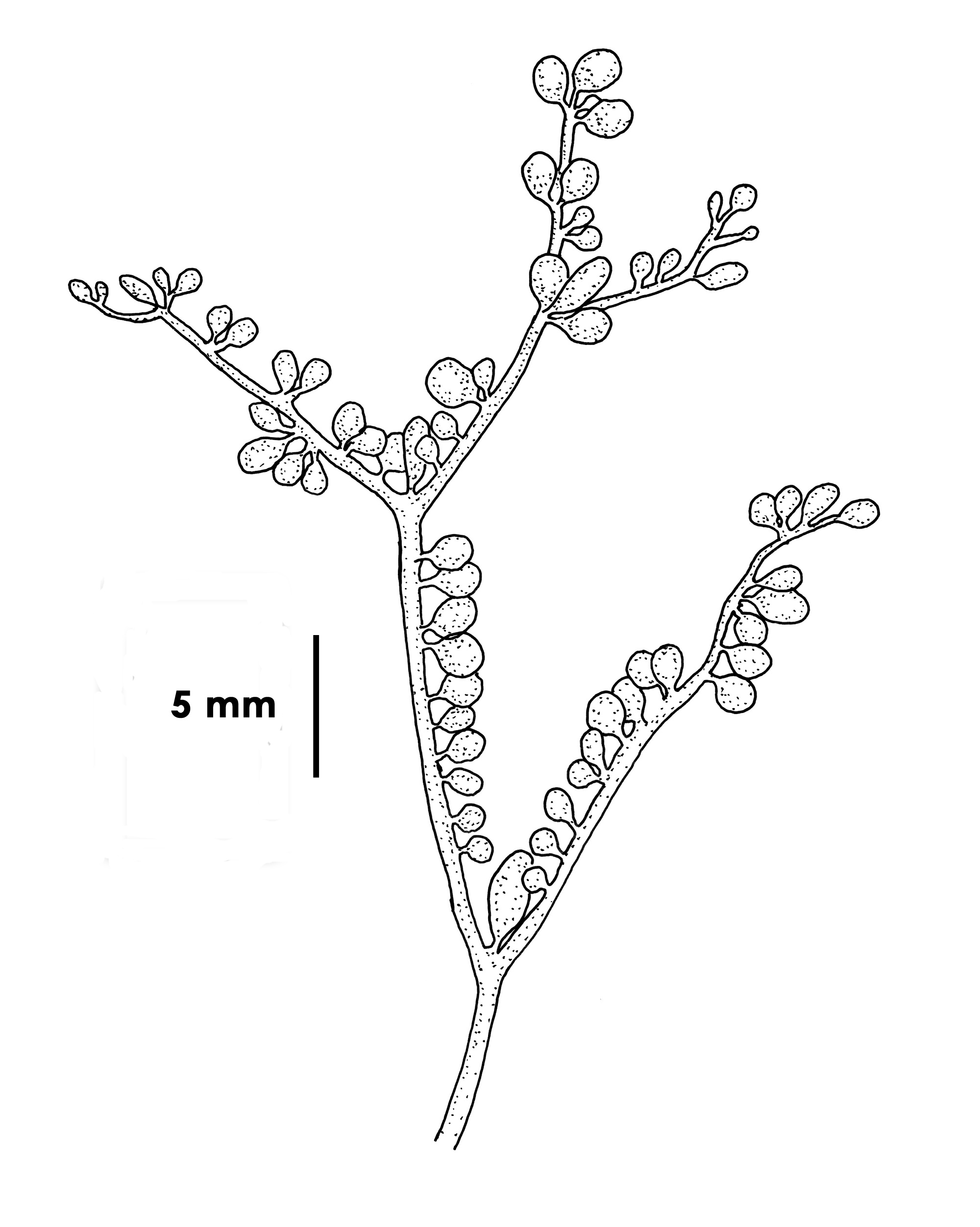Seaweeds of the South African South Coast


Order Rhodymeniales
Family Rhodymeniaceae
Botryocladia pienaarii RE Norris 1989: 132-136, figs 1-15, 43
Plants red, rather delicate, up to 15 cm long, comprising pseudodichotomously branched terete axes usually bearing unilateral rows of round to ovoid hollow vesicles; axes about 1 mm diameter, often with a single larger vesicle in the axil of branches; vesicles almost always borne only on one side of an axis, usually 1-2 mm long (rarely to 5 mm), with short stalks. Axes in cross section with cortex of 1-2 layers of small cells overlying a solid medulla of ellipsoidal cells (about 200 x 50 µm) arranged with their long axes perpendicular to the main axis; vesicles in cross section with wall of 2-3 cell layers, some of the medullary cells with parts of their walls exposed to exterior, except on basal parts of vesicle where cortex is continuous; outer cortical cells about 10 µm diameter, inner medullary cells about 50 µm diameter; series of up to 4 secretory cells borne on inner medullary or special bearing cells, protruding into central cavity. Tetrasporangia scattered over vesicles, embedded in cortex, ellipsoidal to flask-shaped, cruciately divided and up to 40 µm long. Cystocarps about 500 µm in diameter, 1-6 per vesicle, embedded in vesicle walls and protruding internally and externally.
Collections, ecology and regional distribution
Found in the shallow sublittoral from Port Alfred to Richards Bay in northern Kwazulu-Natal (39-54).
World distribution: South African endemic.
Type locality: Kowie (Port Alfred) (Norris 1989).
Note: Norris (1989) reports some morphological differences between winter and summer forms of this species in Kwazulu-Natal: in winter vesicles are small (to 2 mm long) and lie in alternate unilateral rows along axes, while in summer vesicles are larger (to 5 mm long) and sparse on the axes.

Botryocladia pienaarii, re-drawn from Norris (1989: Fig 4).
References Botryocladia pienaarii
Norris. RE 1989. Natalian Botryocladia (Rhodymeniales, Rhodophyceae), including description of a new, long axis-forming species. Botanica Marina 32: 131-148.
Cite this record as:
Anderson RJ, Stegenga H, Bolton JJ. 2016. Seaweeds of the South African South Coast.
World Wide Web electronic publication, University of Cape Town, http://southafrseaweeds.uct.ac.za; Accessed on 16 February 2026.